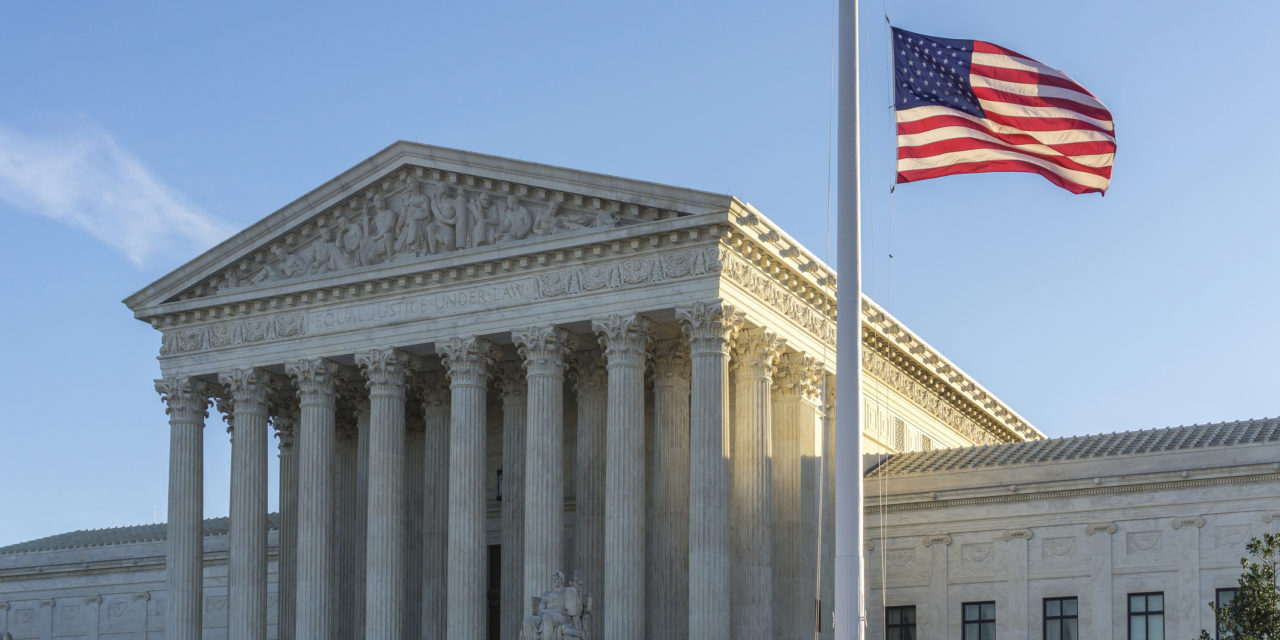“It was the best of times, it was the worst of times, it was the age of wisdom, it was the age of foolishness.” So it was yesterday at the U.S. Supreme Court, to quote Charles Dickens’ in A Tale of Two Cities.
On November 1, the court issued two orders in highly important cases for religious liberty.
In the first case, the Supreme Court summarily reversed a lower court opinion that had upheld a New York regulation requiring employers to cover abortions in their health insurance plans.
For the Roman Catholic Diocese of Albany and the Sisterhood of Saint Mary (the oldest Anglican religious order founded in America), that regulation just wouldn’t fly.
The two organizations, with the help of lawyers from The Becket Fund for Religious Liberty, sued for relief from the regulation. After losing in the New York court system, the diocese and the sisterhood appealed to the Supreme Court.
Yesterday, the court ordered the New York court system to reconsider its decision in light of Fulton v. Philadelphia. In that June 2021 decision, the Supreme Court said the city of Philadelphia could not force Catholic Social Services to place children in foster care with same-sex parents in violation of its religious convictions.
Because the recent Fulton ruling could impact the analysis in this New York case, the Supreme Court said the lower courts need to reconsider it.
“We believe that every person is made in the image of God,” said Mother Miriam of the Sisterhood of Saint Mary in a statement following yesterday’s decision.
“That’s why we believe in the sanctity of human life, and why we seek to serve those of all faiths—or no faith at all—in our community. We’re grateful that the Supreme Court has taken action in our case and hopeful that, this time around, the New York Court of Appeals will preserve our ability to serve and encourage our neighbors.”
In the second case, Dignity Health v. Minton, the Supreme Court turned away a request from Dignity Health (hereafter “Dignity”), a Catholic hospital which “seeks to further the healing ministry of Jesus by caring for the sick in accordance with Catholic teachings.”
Dignity was sued by Evan Minton, a transgender man (a biological female) for refusing to provide her with a hysterectomy as a treatment for gender dysphoria.
Dignity, as a Catholic hospital, must follow the Ethical and Religious Directives for Catholic Health Care Services, which prohibits sterilization in the absence of a “present and serious pathology.”
In short, Minton wanted Dignity to remove a biologically healthy organ as a treatment for her gender dysphoria. But this would force Dignity to violate its religious convictions, not to mention its desire to practice good medicine.
According to the petition that Dignity had filed at the high court, “This case poses a profound threat to faith-based health care institutions’ ability to advance their healing ministries consistent with the teachings of their faith.”
Dignity “is committed to serving all who need care and does not discriminate against any category of patients, including transgender individuals.” However, the hospital “does not allow its facilities to be used for a limited number of procedures—primarily abortion, sterilization, and euthanasia—that are contrary to the Catholic faith.”
Ryan T. Anderson, president of the Ethics and Public Policy Center, tweeted out a short summation elucidating the case:
If the patient was a man, no hysterectomy was possible. If the patient was a woman with a healthy uterus, no hysterectomy was medically necessary. This case had nothing to do with "transgender rights" but disagreements about nature and purpose of medicine. https://t.co/HhVwBW6XOt pic.twitter.com/OD94XmEC0Q
— Ryan T. Anderson (@RyanTAnd) November 2, 2021
Justices Thomas, Alito and Gorsuch noted in the order that they would have granted Dignity Health’s petition. According to the Supreme Court’s procedures, it takes four votes from different justices to hear a case – meaning Dignity Health came up just one vote shy.
For unknown reasons, neither Justice Barrett nor Justice Kavanaugh voted to accept Dignity Health’s petition.
Also of note, it seems Minton is on a legal crusade against Dignity. Just three days after being denied the elective hysterectomy, he received the procedure at a different non-Catholic hospital. Yet, he filed the lawsuit against Dignity anyway.
Wesley Smith, a conservative lawyer, expressed concern that the Supreme Court’s decision to turn away Dignity’s petition “is a potential catastrophe for freedom of religion.”
“If the jury returns a seven-figure verdict against Dignity Health … the verdict will declare open season on Catholic health care for trial lawyers.
“In the end, these hospitals may be forced to choose between continuing to serve patients and remaining true to the precepts of the faith. And six members of the Supreme Court appear content to let it happen. That should not be the American way.”
To end where we began, with A Tale of Two Cities, yesterday at the high court, “it was the season of light, it was the season of darkness, it was the spring of hope, it was the winter of despair.”
The cases are Roman Catholic Diocese v. Emami and Dignity Health v. Minton.
Photo from Shutterstock.






